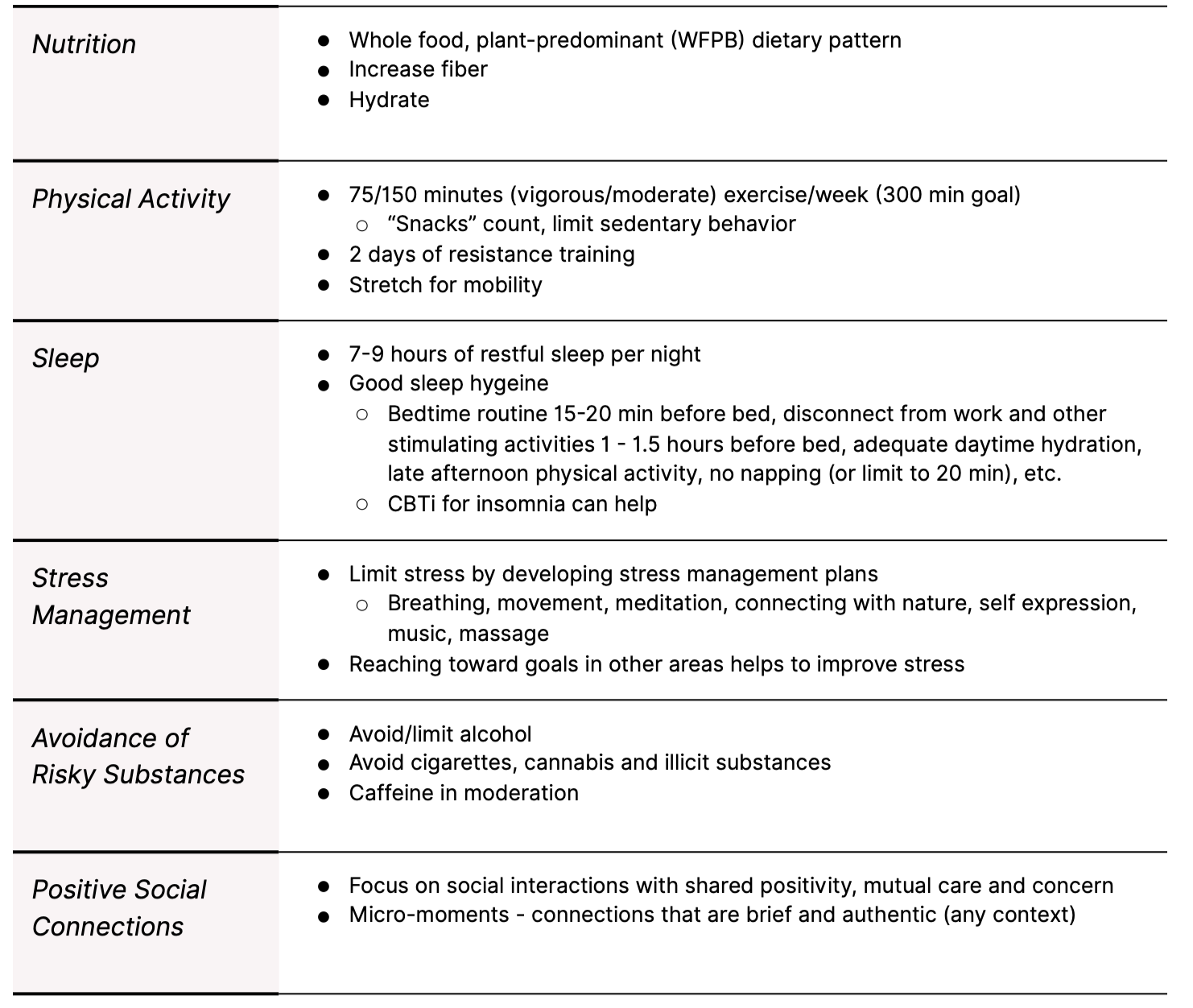Why Lifestyle Medicine Matters in Perimenopause and Menopause
Midlife is a time of profound transition — physically, emotionally, and hormonally. As estrogen and progesterone levels shift, many women experience changes that affect nearly every system in the body: metabolism, sleep, mood, bone health, cardiovascular function, and even cognitive clarity.
While these changes are a natural part of life, they don’t have to mean a decline in well-being. This is where lifestyle medicine becomes an incredibly powerful ally.
Lifestyle medicine goes beyond symptom management. It focuses on the root causes of imbalance and uses evidence-based habits — nutrition, movement, restorative sleep, stress resilience, connection, and avoidance of harmful substances — to support the body’s innate ability to adapt and heal.
For women in perimenopause and menopause, these pillars are foundational:
Nutrition influences hormone metabolism, bone strength, and cardiovascular health.
Physical activity helps preserve lean muscle, support healthy weight, and improve mood and sleep.
Stress management and mindfulness practices reduce hot flashes, improve emotional regulation, and support adrenal balance.
Restorative sleep becomes both a priority and a therapeutic tool.
Social connection buffers stress and protects cognitive and emotional health during life transitions.
The evidence is clear: lifestyle choices can profoundly impact how women experience this stage of life — improving symptoms, preventing chronic disease, and enhancing quality of life.
Rather than seeing menopause as a loss, lifestyle medicine reframes it as an opportunity — a pivotal moment to realign habits, nurture self-care, and invest in lifelong vitality.
When women are supported with knowledge and evidence-based strategies, this season can be one of empowerment, strength, and renewed purpose.
(See the chart below for an overview of the six core pillars of lifestyle medicine and how each supports optimal health through menopause and beyond.)


